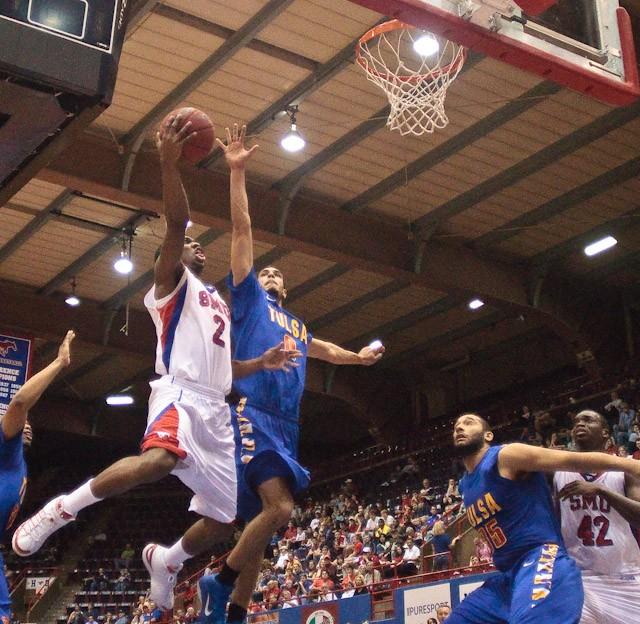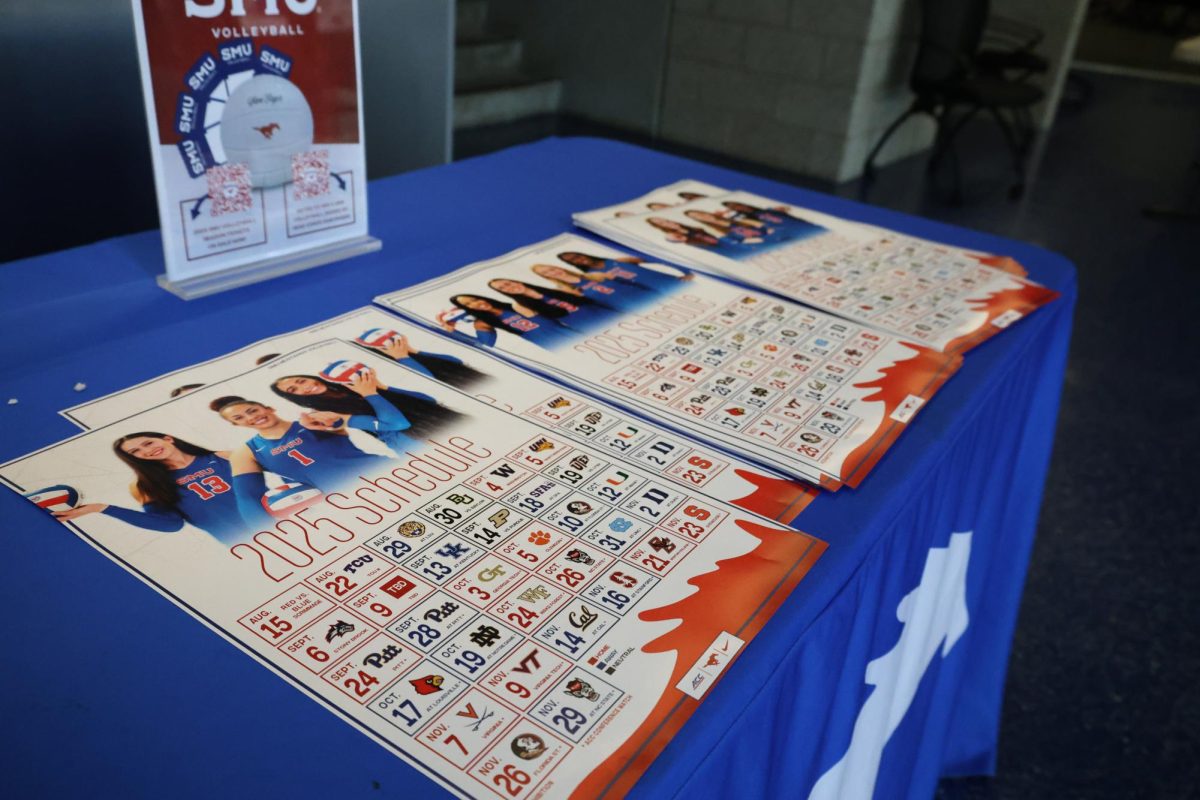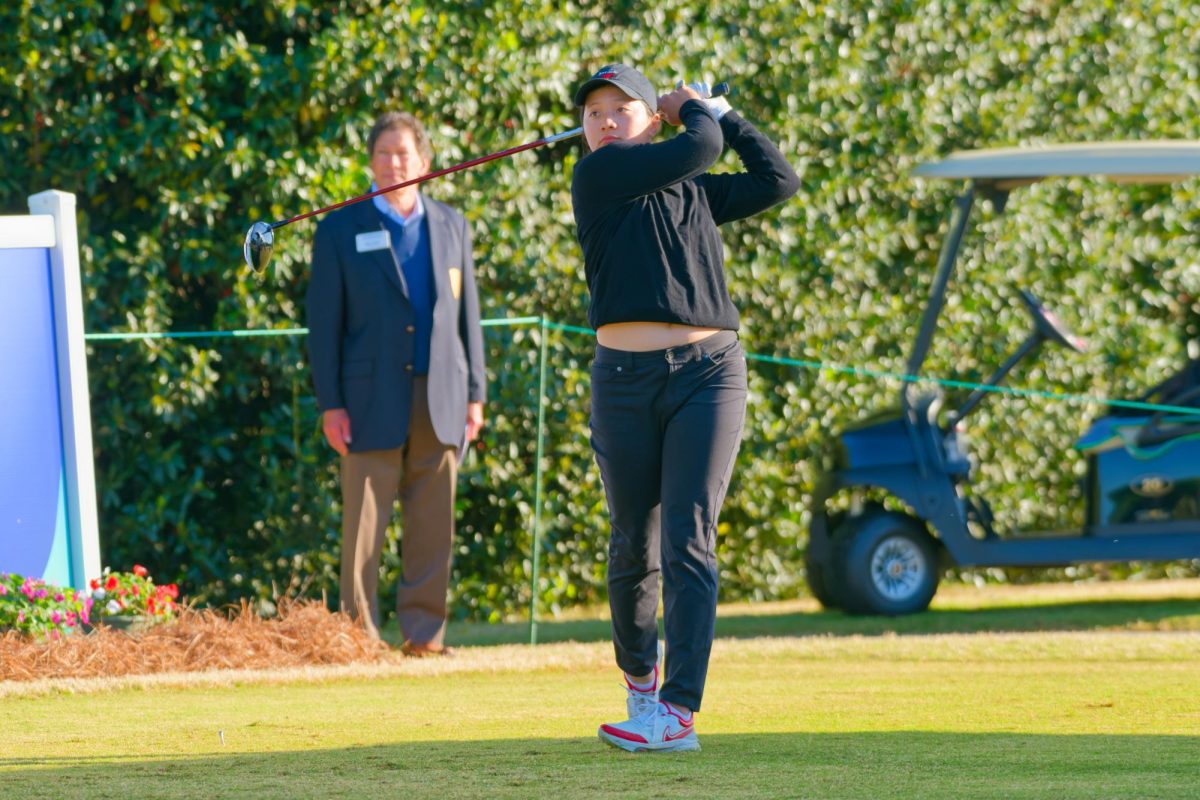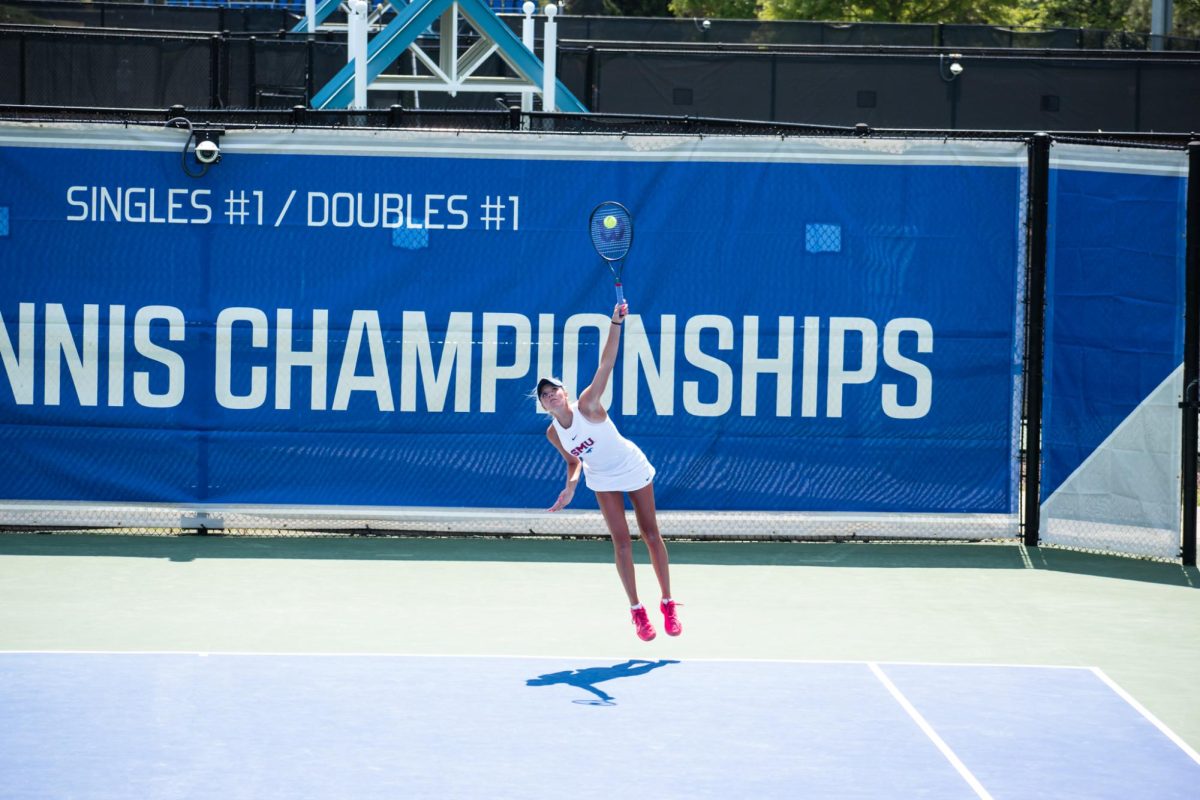
SMU forward Jusin Haynes goes for a layup against Tulsa guard Bryson Pope during play Feb. 19 inside Moody Coliseum. SMU lost to Marshall University Saturday, 64-62. (MICHAEL DANSER/ The Daily Campus )
The NCAA sanctioned the SMU men’s basketball program for recruiting infractions Thursday after SMU reported that it had inadvertently violated text-messaging rules.
The NCAA accepted the university’s recommendations for a two-year probation, in addition to reduced recruiting-person days and official paid visits to the program.
SMU has also implemented a two-week ban on initiating communication with prospective men’s basketball players and had all SMU coaches attend an NCAA Regional Rules Seminar in June 2010.
Read the specific sanctions at the bottom of this story.
The NCAA said in a press release that SMU “sent an estimated 100 text messages” to at least seven prospective athletes’ parents after the former director of compliance advised the staff that text messages could be sent to parents of prospective athletes.
NCAA rules prohibit text messages to parents and student athletes. SMU said in its own press release that those seven prospective students “ultimately signed with other institutions.”
In its press release, the university explained that though each text message constituted a secondary violation, “the total number and duration of the texting elevated the violations to major.”
SMU reported the violations to the NCAA when Head Coach Matt Doherty learned that the former director of compliance had been wrong. Doherty also corrected his staff on the rules.
The NCAA also found an associated violation when SMU failed “to implement self-imposed rules education” after the University reported four secondary violations in 2007 and 2008. Those violations were also related to improper text messages.
The NCAA’s Division I Committee on Infractions commended Doherty’s actions in this case, noting that “the men’s basketball staff sought guidance on rules rather than knowingly circumventing them.”
“Further, the committee noted that there is no evidence that more than a minimal recruiting advantage was gained by these inadvertent violations,” the NCAA press release said. “The committee also concluded the erroneous guidance from the former director of compliance strongly mitigated the staff’s responsibility for the violations. Finally, the committee noted the head coach kept up to date on rules education, which led him to discover the recruiting violations.”
An outside firm hired by SMU conducted an investigation into the matter, according to the University. That investigation found 16 impermissible text messages had been sent over a three-month period to parents of recruits.
“Because the text messaging occurred over two years (2007-2009), the NCAA and SMU estimated the total number of impermissible text messages to be not more than 100,” SMU wrote in a press release.
Athletics Director Steve Orsini said SMU is “committed to full compliance with NCAA regulations” in an SMU press release, noting that they had already taken corrective measures.
Orsini noted that SMU had changed its compliance staff and were “increasing the number of staff members in view of the fact that technology is adding new dimensions to the compliance environment.”
Orsini added that the University had expanded its programs to keep its staff up to date on NCAA regulations and that it has “instituted a state-of-the-art system” to monitor text messaging.
“The fact that this problem was self-reported and proactively addressed reflects our commitment to maintaining a culture of compliance and accountability regarding NCAA regulations,” he said.
- Public reprimand and censure.
- Two years of probation from March 10, 2011, through March 9, 2013.
- Two-week ban on initiating communication with basketball prospective student-athletes beginning April 28 and concluding May 11, 2010.
- For the 2010-11 and 2011-12 academic years, the number of recruiting in-person days available to the men’s basketball staff will be reduced by 15. As a result, the total number of days will not exceed 115.
- For the 2010-11 and 2011-12 academic years, the number of official paid visits available to the men’s basketball staff will be reduced by two. As a result, the total number of official visits will not exceed 10.
- All coaches of all sports at the university were required to attend the NCAA Regional Rules Seminar.














